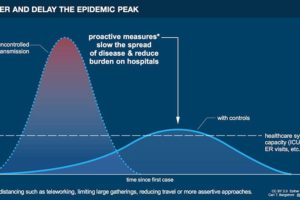When it comes to mental health, like most of nutrition science, there is no one size fits all approach that will work for everyone. The reason for this being that the nutritional causes of mental health issues vary from person to person. A major reason for this is that most nutrients have some sort of contribution to mental health, so in many cases it doesn’t really make sense to single out one specific nutrient without lab tasting that shows this specific nutrient is deficient.
There is a saying that many medical practitioners adhere to, as well as I, “what’s good for the heart is good for the brain.” So taking a look at heart health is always a great first step as our nervous and cardiovascular systems are intricately linked, to the point that it’s very difficult to talk about the long term health of one without talking about the other.
Now I’m not going to go into depth about heart health here as this is something I plan to address in the future. Also, I already did an article about Vitamin D and anxiety that you can find here. Instead, I’m going to focus on some nutrients that are often missing in the standard American diet (SAD) and that are linked to mental health issues.
Vitamin B9: folate
In one study it was found that those treated with B vitamins had a lower level of homocysteine, a marker of inflammation (which is also a marker for low B12) that has been shown to lower brain atrophy in those who suffer from mild cognitive impairment.1 Another study has shown that in those being treated for depression with Prozac, folate and Prozac together resulted in a 93.9% improvement for women compared to the Prozac and placebo group which showed a 61.1% improvement.2 Men didn’t fare as well, and it’s believed the dose used wasn’t high enough to result in the same level of improvement as men.
B6: PLP (or pyridoxyl-5′-phosphate)
A study of elderly individuals showed that those with deficient levels of B6 in the blood had approximately double the likelihood of depression.3 In addition, a meta-analysis of B-vitamins (including B-6 and B-12) showed that supplementation led to reduced psychiatric symptoms and a shorter duration of illness.4
B12 (cobalamin or methyl cobalamin)
One of the issues with trying to discuss the research on B12 and mental health is that B12 and B9 are both part of the methylation- homocysteine cycle. What this means is that it can be difficult to tell which vitamin resulted in any improvement shown. Due to this limitation, some studies have been done on both vitamins. What is known though is that research has shown that elevated homocysteine levels in the blood are a contributing factor for depressive issues and B12 as well as B9 play a role in lowering homocysteine levels.5
The folate-B12 issue is one of the reasons why it’s important to look deeply into a person’s health and not make quick assumptions since folate can mask a B12 deficiency. In addition, a B12 deficiency may be a result of factors besides one’s intake of food or supplements. An example of this is the use of heartburn and ulcer medications which have been found to lower B12 levels and result in dementia, nerve damage, anemia, just a few of the health complications of deficient levels of B12.6 Important note: if your diet is a vegan diet, a B12 supplement is essential since it can only be found in animal products or bacteria and the risk of infection makes getting it from unclean foods extremely dangerous.
B1: (thiamine)
What is known about thiamine is that mild deficiency can lead to irritability, emotional issues, confusion, disturbed sleep, and memory loss.7 While it can be difficult for some people to be deficient in the U.S. due to fortification of foods (particularly bread), it is not out of the question. As many have switched away from gluten containing processed foods (and there are good arguments for this), many of the brands they use to replace those grains may not contain fortified thiamine. This can lead to a thiamine deficiency over time, especially if you don’t eat generous portions of nuts, oats, brown rice, beans, and other vegetables. Fast food vegans who are gluten free may be particularly at risk since cutting out meat, and eating primarily processed grains means there is a greater need to make sure you are getting enough of the vitamin by eating other foods rich in thiamine.
B2 and B5 (riboflavin and pantothenic acid)
Like thiamine, one of the primary concerns with B2 is the need to prevent deficiency since the vitamin is involved in the metabolism of essential fatty acids in brain lipids.7 Like B1 and B2, getting adequate pantothenic acid to prevent deficiency is important for mental health due to the vitamin’s function in brain cells via the synthesis of other nutrients such as cholesterol, amino acids, and fatty acids.7
Next steps
At this point you are probably asking, “Ok, well how much should I take?” The answer is, it depends on your current intake and what you are using food or supplements for. If you are just looking to increase your overall health in general, then finding food sources of these nutrients is the best choice because you then get to maximize the synergy of nutrients found in foods. If you have or suspect a mental health condition, then this may warrant a supplement but it’s important to talk to a functional and integrative health practitioner who can help you determine how much you need. It may be that you don’t actually need a supplement but just to incorporate a few foods to get the nutrients you need. Also, it’s important to remember that we are multifaceted beings with a complex biology that is influenced by our environment. This means that supplements won’t be able to wipe away the stress that an extremely negative environment will have on the body. While nutrients are important, so are lifestyle behaviors that support your mental health.
References:
1. Jager, C. A., et al (2011). Cognitive and clinical outcomes of homocysteine-lowering B-vitamin treatment in mild cognitive impairment: a randomized controlled trial. International Journal of Geriatric Psychiatry, 27(6), 592–600. doi:10.1002/gps.2758
2. Coppen, A., & Bailey, J. (2000). Enhancement of the antidepressant action of fluoxetine by folic acid: a randomized, placebo controlled trial. Journal of Affective Disorders, 60(2), 121–130. doi:10.1016/s0165-0327(00)00153-1
3. Merete, C., Falcon, L. M., & Tucker, K. L. (2008). Vitamin B6 is associated with depressive symptomatology in Massachusetts elders. Journal of the American College of Nutrition, 27(3), 421-7.
4. Firth, J., et al (2017). The effects of vitamin and mineral supplementation on symptoms of schizophrenia: a systematic review and meta-analysis. Psychological Medicine, 47(09), 1515–1527. doi:10.1017/s0033291717000022
5. Coppen, A., & Bolander-Gouaille, C. (2005). Treatment of depression: time to consider folic acid and vitamin B12. Journal of Psychopharmacology, 19(1), 59–65. doi:10.1177/0269881105048899
6. Kaiser Permanente. (2013, December 10). Long-term use of common heartburn and ulcer medications linked to vitamin B12 deficiency. ScienceDaily. Retrieved January 26, 2019 from www.sciencedaily.com/releases/2013/12/131210163612.htm
7. Kennedy D. O. (2016). B Vitamins and the Brain: Mechanisms, Dose and Efficacy–A Review. Nutrients, 8(2), 68. doi:10.3390/nu8020068








